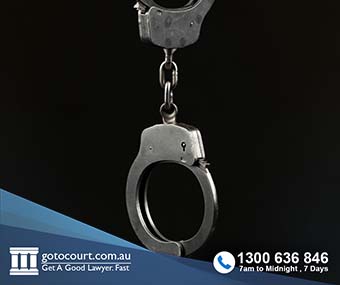Character References in WA
Whether you have been charged with a drink driving or another traffic offence or a drug offence or violent offence, character references are an important tool that can be used in presenting your case to the court. These references can assist the court in Western Australia to better understand the overall personality of the accused as well as the context surrounding the offence that was committed. In some instances, character references will carry significant weight when a judge makes a final decision as to the penalty that is handed down. Therefore, a knowledge of what you should and should not include in a character reference is key to ensuring the best outcome for your case.
Rules to follow
As stated above, a character reference is used as a tool to persuade the court of your circumstances and how they relate to the offence committed. Therefore, it is essential that the referee who writes the reference knows enough about you and the trouble you are facing to write an accurate and detailed description of your character.
There is no set rule in Western Australia on who may complete your character reference, essentially anybody can complete the reference including family, friends, employers, doctors, priests, neighbours and teachers.
Remember that the reference will be given to a Judge and therefore, you must respect the court by following certain procedures. Where possible, the reference should be typed on A4 paper and kept to one page in length. Handwritten references are accepted as long as they are neat and legible. If the matter is dealt with in the Magistrates Court, the reference should be addressed to “the Presiding Magistrate”, and “the Presiding Judge” if the matter is dealt with in the District or Supreme Court.
What not to say in a character reference
A person providing a character reference to the court should be aware of the following.
- Do not use a reference written for a separate purpose i.e. a job application
- Do not use an old character reference, ensure all references are recent
- Do not attempt to put forward your legal opinion
- Do not speculate about the offence that was committed
- Do not suggest to the court the kind of penalty that should be imposed
- Do not disclose previous offences unless specifically relevant
- Do not disrespect the court in any way
What a character reference should set out
A character reference must cover the following points;
- An introduction of the referee and their standing in the community
- An acknowledgement that the referee is aware of the offence that has been committed by the accused
- A detailed account of why the referee believes the accused is of good character, including personal recounts of instances where the accused has shown positive character traits
- Details of any issues of hardship that the accused may face if convicted or if sentenced to imprisonment
- Details of the offender’s financial circumstances if relevant
- The writer’s signature and the date.
Types of charges
Whilst the above information serves as a guide to what may or may not be included in a character reference in Western Australia, it is important to note that different crimes require different information.
For instance, if the accused has committed a drink driving offence or drug related offence, the character reference will generally focus on rehabilitation and steps the accused has taken to quit drinking/drugs. On the other hand, if the accused has committed an assault, the character reference will typically focus on demonstrating that the assault was out of character for the accused and that they are not a threat to the community.
Further, if you have been charged with a traffic offence, it may be useful to obtain a further character reference from a person outside of your family. This is in order to demonstrate to the court that an independent third party can also vouch for your good driving history.
Other factors to consider
If you are currently receiving medical care for any medical (physical or mental) condition, a letter from your doctor or counsellor may help the court to understand any medical limitations that may impact upon the penalty that is handed down.
Any reference from a medical or health practitioner should include similar details as noted above and should also specify any medications you are on, any treatments that you are receiving and any other matters that the doctor or health practitioner believes are useful for the court to consider.
If you require legal advice or representation in any legal matter, please contact Go To Court Lawyers.








